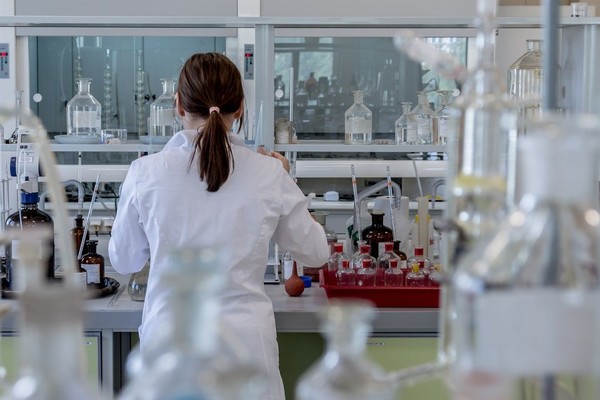The Korean pharmaceutical industry rolled out four home-grown new medicines in 2021. Industry watchers are paying attention to which company will introduce a new drug in 2022.
Observers said companies conducting or finishing phase 3 trials to finalize the safety and efficacy might release new drugs this year.

SK Bioscience is closest to marketing a locally made new drug this year.
Developing a Covid-19 vaccine, GBP510, SK Bioscience completed recruiting participants for a global phase 3 study on Jan. 18. The company said 4,037 adults would participate in the phase 3 study – 570 from Korea and 3,467 from Europe, Southeast Asia, and Oceania.
GBP510 is a recombinant protein-based Covid-19 vaccine candidate, jointly developed by SK Bioscience and the Institute for Protein Design (IPD) at the University of Washington. GlaxoSmithKline’s (GSK) adjuvant technology is used for the vaccine candidate.
Once SK Bioscience finishes vaccine administration, it will secure efficacy and safety data. In Korea, the company completed the administration of the second dose. The Korea Disease Control and Prevention Agency’s National Institute of Health and the International Vaccine Institute evaluate neutralizing antibodies’ effect.
SK Bioscience said it planned to obtain accelerated approval for GBP510 in Korea, the WHO’s prequalification, and emergency use authorization overseas within the first half of this year.
As the candidate is a synthetic antigen-based vaccine used in existing vaccines against influenza and hepatitis B, the company said it is possible to encourage unvaccinated people to get a Covid-19 shot. Also, the vaccine can be refrigerated and stored for a long time, making it possible to supply the vaccine to underdeveloped countries.
Daewoong Pharmaceutical scored the regulatory nod for GERD drug Fexuclue Tab. (fexuprazan hydrochloride), the nation’s 34th novel medicine, late last year. The company aims to win approval for another new drug this year.
Daewoong is seeking marketing approval for Enavogliflozin, an SGLT-2 inhibitor for diabetes treatment, in the first half.
The company emphasized that Enavogliflozin was the nation’s first SGLT-2 inhibitor for diabetes treatment.
On Jan. 14, Daewoong released the topline results of the phase 3 trial of Enavogliflozin monotherapy and Enavogliflozin plus metformin combination.
The Enavogliflozin monotherapy study on over160 patients with type-2 diabetes showed that the difference in HbA1c change between the Enavogliflozin group and the placebo group was 0.99 percentage points, a statistically meaningful value, according to the company.
In the phase 3 study of Enavogliflozin plus metformin combo, Enavogliflozin proved non-inferiority to the combo of dapagliflozin and metformin, Daewoong said.
Daewoong hopes to win approval for a combination drug of Enavogliflozin and metformin, as well as Enavogliflozin monotherapy. On Jan. 10, the company was granted a phase 1 bioequivalence test to compare Enavogliflozin and metformin combo.
Daewoong also applied for trademarks of the antidiabetic drug “Enazin.”
The Food and Drug Safety Ministry designated Enavogliflozin as a drug requiring expedited review in 2020. Daewoong hopes to get the review results quickly.
Dong-A ST recently obtained approval for a local phase 3 study of overactive bladder treatment DA-8010.
Onconic Therapeutics, a subsidiary of Jeil Pharmaceutical, was also cleared to conduct a phase 3 trial of a P-CAB drug JP-1366 for reflux esophagitis treatment. However, given the required time for patient recruitment, industry watchers said it would take two to three years to apply for marketing approval.
Hanmi Pharmaceutical is waiting for FDA approval for poziotinib, a non-small cell lung cancer (NSCLC) treatment licensed out to a U.S. partner firm, Spectrum Pharmaceuticals.
To help Korean pharmaceutical companies release locally developed new drugs, the MFDS has to secure more professionals for drug review, experts said at a conference held by the Korea Pharmaceutical and Bio-Pharma Manufacturers Association (KPBMA) on Jan. 13.
According to the KPBMA, the MFDS has only 333 people (176 government officials, 157 contract workers) to grant drug approval and review healthcare products. The number is dwarfed by 8,398 at the FDA, 4,000 at the EMA, and 561 at Japan’s Pharmaceuticals and Medical Devices Agency (PMDA).
The MFDS said it would benchmark the FDA to support home-grown new medicines.
At the KPBMA conference, Food and Drug Safety Minister Kim Gang-lip said the ministry would ease regulations but thoroughly verify drug safety and actively pursue structural changes to support companies.
“The MFDS will become a service institution to support the commercialization of drugs,” he said.

